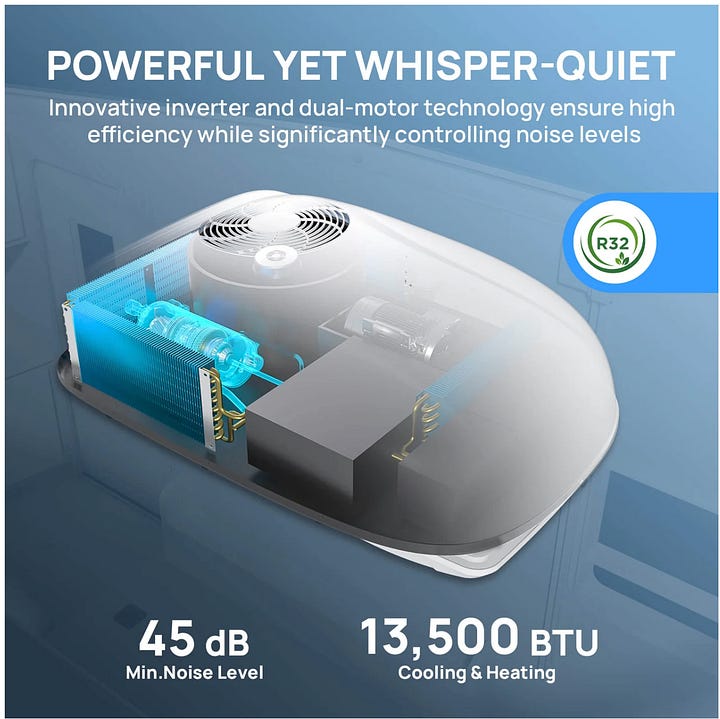The future of RV inverter air conditioners
I'll know more soon, but here's the possibilities...
Everyone,
I’ve had a number of inquiries about so-called “inverter air conditioners”. These are so named because they use a variable speed compressor that’s controlled by an internal inverter power supply. This has nothing to do with an RV being pluggined into shore power or running from an inverter generator, or even powered a solar/battery powered inverter. It’s all about the compressor technology.
What’s to like?
Basically, this type of compressor technology works like a residential Mini-Split air conditioner. Instead of the compressor switching ON or OFF multiple times an hour with a loud bang and large inrush current, these inverter compressors throttle up and down slowly, depending on how much cooling is needed. Plus this technology is touted as being more efficient and using a lot less current while running at full cooling. But I won’t know until I measure it for myself.
Who’s making them
In addition to the Furrion Chill Cube, there’s also another contender in this new market. The Turbro Greenland 13,500 BTU Inverter RV Air Conditioner with Heat Pump. Now I don’t know anything about the Greenland Inverter Air Conditioner, except for what I read on their website, but it certainly looks interesting. Read more about it HERE.


I’m asking for a test unit
I’m not sure if Turbro will send me one, but I’m asking for a test unit. So if that works out and I also get my Furrion Chill Cube soon, I’ll do a head to head comparison of these units late this summer or fall.
Do you have one of these?
If any of you already have a Furrion Chill Cube or Turbro Greenland Inverter air conditioner (or something else I don’t know about), please contact me at mike (at) NoShockZone (dot) org with details. At first blush this new technology looks like the future or RV air conditioners, but I want to see them for myself. .
Let’s play safe out there… Mike
.







Sounds promising. I hope they are heads up to engineer them to easily mount into the existing holes in our rv roofs.
Mike, be sure to compare the CFM numbers. In extreme temps with poorly insulated RVs CFM is king IMHO. Especially in ducted systems.